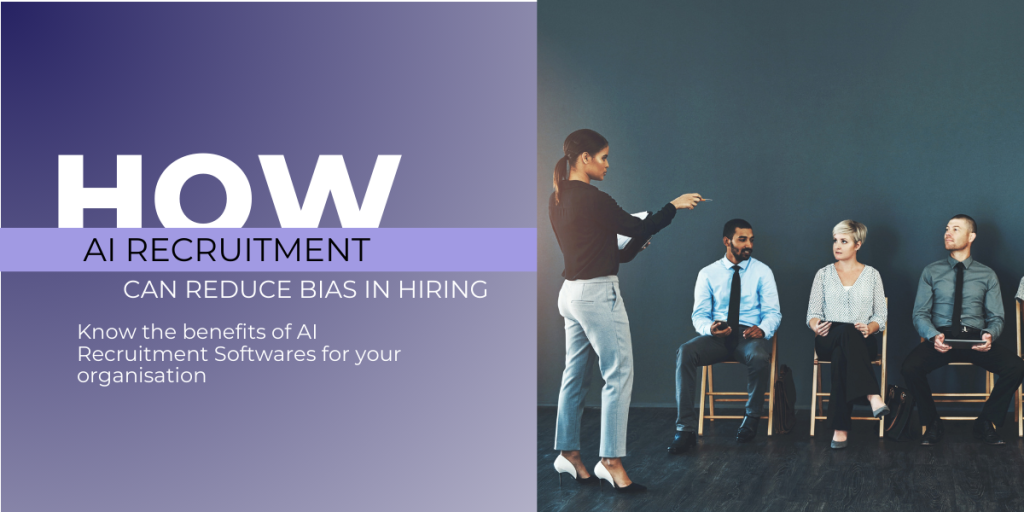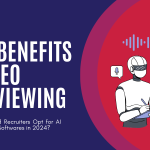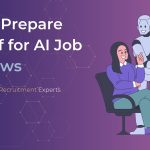In today’s increasingly diverse and globalized workforce, reducing bias in hiring has become a critical goal for organizations. Unconscious biases, whether based on race, gender, age, or other factors, can significantly impact hiring decisions, leading to less diverse and potentially less effective teams. Traditional recruitment processes often struggle to eliminate these biases. However, advancements in artificial intelligence offer promising solutions. This blog explores how AI recruitment can reduce bias in hiring, ensuring a fairer and more equitable process.
Understanding Bias in Hiring

Types of Bias
- Unconscious Bias: These are biases that individuals are unaware of but influence their decisions. For example, favoring candidates from certain schools or backgrounds.
- Confirmation Bias: This occurs when recruiters favor candidates who confirm their pre-existing beliefs or preferences.
- Affinity Bias: This happens when recruiters prefer candidates who share similar interests, backgrounds, or experiences.
- Gender Bias: Preferring one gender over another for a particular role, consciously or unconsciously.
- Racial Bias: Favoring or discriminating against candidates based on their race or ethnicity.
Bias in hiring can lead to a lack of diversity within an organization, which in turn can affect creativity, innovation, and overall performance. It can also damage an organization’s reputation and lead to legal consequences.
How AI Recruitment Reduces Bias in the Hiring Process
1. Objective Candidate Evaluation
AI recruitment systems use algorithms to evaluate candidates based on objective criteria rather than subjective judgments. These systems analyze resumes and interview responses to identify the best candidates based on skills, experience, and qualifications. This helps eliminate personal biases that can influence human recruiters.
2. Structured Interviews
AI interview platforms like Xenhire provide structured interviews, where all candidates are asked the same set of questions in the same manner. This consistency ensures that every candidate is evaluated based on the same criteria, reducing the potential for bias.
3. Anonymized Screening
AI recruitment tools can anonymize candidate information, removing details such as names, genders, and ages from resumes during the initial screening process. This prevents biases based on these attributes and ensures that candidates are assessed solely on their qualifications and experience.
Also read:- How AI Transforms Pre-Screening in Recruitment
4. Data-Driven Decisions
AI systems use large datasets and advanced analytics to make hiring decisions. These systems are trained to recognize patterns and correlations that may not be apparent to human recruiters. By relying on data rather than gut feelings or intuition, AI reduces the influence of biases in the hiring process.
5. Continuous Learning and Improvement
AI recruitment systems continuously learn and improve over time. They can be trained to identify and correct biases in the hiring process by analyzing past decisions and outcomes. This iterative learning process ensures that the AI becomes more effective at reducing bias in hiring with each cycle.
6. Real-Time Feedback and Analysis
AI systems provide real-time feedback and analysis during interviews, assessing candidates’ responses and non-verbal cues. This objective assessment helps ensure that candidates are evaluated fairly and consistently.
Benefits of AI Recruitment for Organizations
#1 Enhanced Diversity
By reducing biases, AI recruitment helps organizations build more diverse teams while hiring. Diversity fosters creativity, innovation, and better problem-solving, leading to improved business outcomes.
#2 Improved Candidate Experience
AI recruitment platforms provide a more consistent and objective evaluation process, enhancing the overall candidate experience. Candidates feel they are being assessed fairly, leading to higher satisfaction and a positive perception of the organization.
#3 Increased Efficiency
AI recruitment systems streamline the hiring process, reducing the time and effort required to screen and evaluate candidates. This increased efficiency allows recruiters to focus on strategic activities and make quicker hiring decisions.
#4 Better Hiring Decisions
With data-driven insights and objective evaluations, AI recruitment helps organizations make better hiring decisions. This leads to improved employee performance and reduced turnover.
#5 Legal and Ethical Compliance
By reducing biases in the hiring process, AI recruitment helps organizations comply with legal and ethical standards. This reduces the risk of discrimination claims and enhances the organization’s reputation.
Also Read:- Top 5 Benefits of Video Interviewing
Conclusion
Reducing bias in hiring is essential for building diverse and high-performing teams. AI recruitment offers a powerful solution by providing objective, data-driven evaluations, and structured interview processes. Xenhire, with its advanced AI interview software, is leading the way to reduce bias in hiring process. By leveraging AI technology, organizations can make fairer hiring decisions, improve candidate experiences, and ultimately achieve better business outcomes.



